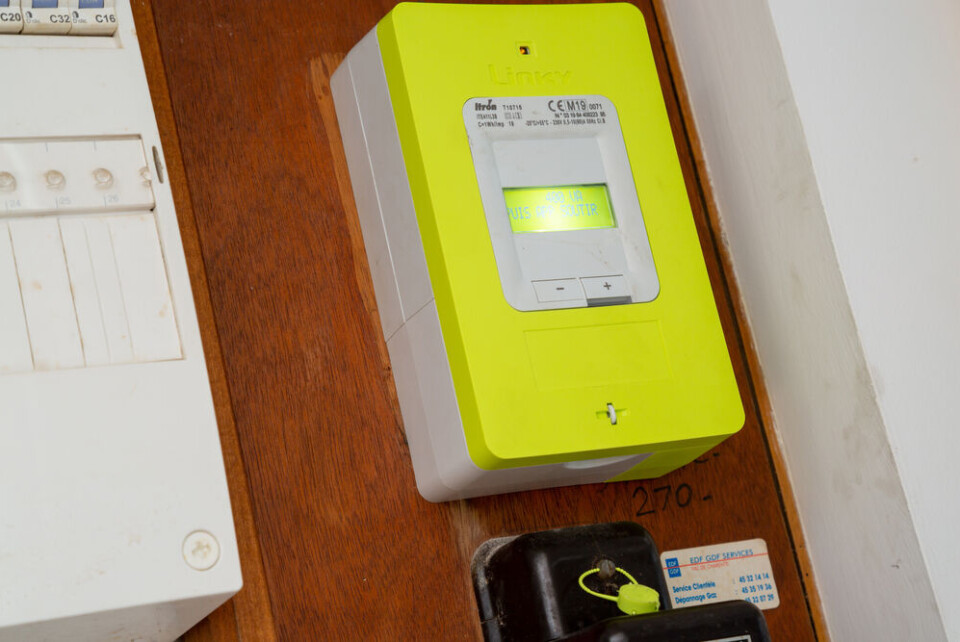-
How many Americans live in Paris - and where else are they choosing in France?
Over a quarter of all US nationals in France live in the capital city
-
Price rises for Netflix in France
The Standard (with ads) and Premium packages are increasing by €24 a year
-
Leclerc supermarkets to sell car fuel at cost price for Easter
The initiative will apply to diesel, petrol, and LPG
Court orders removal of man’s Linky electricity meter
He had been suffering from headaches which he claims were due to electro-sensitivity triggered by the Linky meter

A man who claimed to be suffering from headaches due to his Linky meter has won a court battle to have it removed.
Joseph Cascina from Saint-André-le-Puy (Loire) reported hearing a “constant whistling” in his head after its installation.
“All day, all night… Every evening I had to take a pill to get to sleep, life had become hell,” he told France 3.
“When I left my home, the whistling stopped within an hour. And at my in-laws’ house, where there is no Linky meter, I didn’t hear it either. But when I got back home, within a quarter of an hour, the sound started again.”
Mr Cascina, who had reported no symptoms prior to the Linky meter’s installation, asked Enedis to remove it. When the company refused, he took them to court in January 2023.
The court in Saint-Etienne noted that Mr Cascina was suffering, and ruled that the meter should be removed.
The ruling was based on the court’s interpretation of the European Court of Justice’s ‘Principle of precaution’.
This states that “in case of doubt as to the cause or extent of harm to individuals, institutions can require protective measures without waiting for the reality of the risks to be fully established.”
Enedis replaced Mr Cascina’s Linky meter with an older model, but appealed, aware that many opponents to Linky meters could act upon the decision.
However on November 28 the Court of Appeal in Lyon upheld the original ruling.
The court’s decision was celebrated by the Stop Linky 5G collective, which opposes the mandatory installation of Linky meters.
“The three judges ruled that the court was faced with symptoms that are justifiable,” said spokesperson Denis Nicolier. “Enedis, which has a public service mission, must protect users in the context of the Principle of precaution.”
Linky meters, which were first introduced in 2018, have been fitted in more than 90% of households. People who do not want one in their home must pay a surcharge, however the ruling on health grounds makes Mr Cascina exempt from this.
What is electromagnetic hypersensitivity?
Electromagnetic hypersensitivity (EHS) was recognised as a handicap in France in 2015.
"The symptoms are varied: headaches, chronic fatigue, rashes, concentration problems and more,” Professor Luc Fontana of the University Hospital of Saint-Étienne told France 3.
“The challenge is in ascribing these symptoms to the syndrome, since initially, one must be careful to check they are not due to another health problem.”
In a 2005 report, the World Health Organisation said that the symptoms are “certainly real”, but added that “there is no scientific basis to link EHS symptoms to electromagnetic field exposure.”
An estimated 5% of the population, or 3.5million people in France could be affected by the syndrome, according to a 2018 report by France’s National Social Security Administration, ANSES.
Many such people are already members of groups that oppose Linky meters in France, including the Stop Linky 5G collective, which hopes that the court’s decision will help spread awareness about the condition.
“The real value here is that doctors and judges worked together to study a typical case of electromagnetic hypersensitivity and look for answers,” Mr Nicolier said.
Read more:
Large-scale Linky meter fraud discovered in France
More about how proposed electricity cuts will work in France
French pensioner has electricity cut after refusing Linky smart meter
























